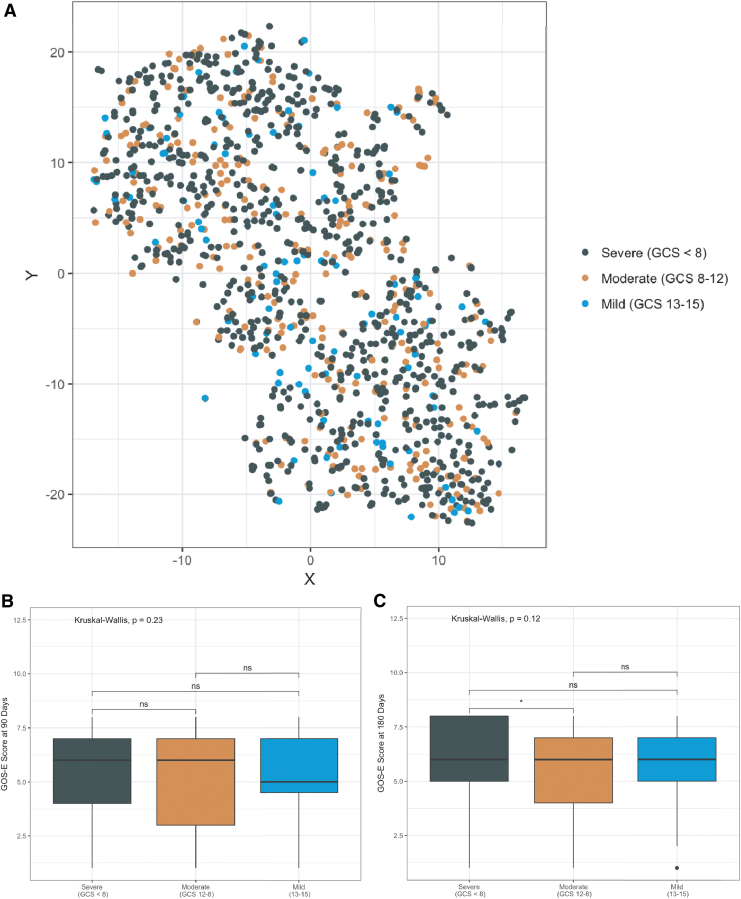FIG. 4.
Baseline Glasgow Coma Scale (GCS) scores do not overlap with traumatic brain injury patient phenotypes and do not correlate with long-term outcome. (A) T-distributed stochastic neighbor embedding (T-SNE) projection of patients within a reduced feature space (same as Fig. 3) labeled by injury severity based on patients' acute GCS score. Injury severity was classified as severe (GCS <8, n = 834; dark green), moderate (GCS 9–12, n = 304; orange), and mild (defined as GCS 13–15 with an abnormal computed tomography [CT] scan, n = 75; blue). Extended Glasgow Outcome Scale (GOS-E) scores at (B) 90 days and (C) 180 days post-injury by injury severity. Statistical significance was computed using the Kruskal–Wallis test with Holm's correction for multiple comparisons (asterisks represent p values: *p < 0.05, p > 0.05 n.s.). Color image is available online.

